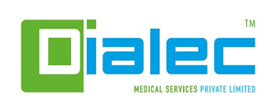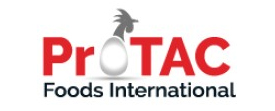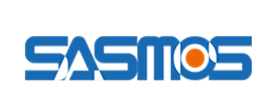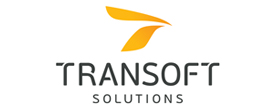Food Safety & Standards Authority of India (FSSAI) Registration Services
Our team helps food businesses obtain FSSAI registration or licences, ensuring compliance with safety standards, building customer trust, and avoiding regulatory penalties.

FSSAI registration is the major compliance under the Food Safety and Standard Act, 2006, required by every food business operator. Whether you're a small home-based food manufacturer or a large-scale exporter, getting an FSSAI licence helps with adherence to important food safety regulations. FSSAI keeps a watch and ensures the rightful enforcement of these standards to protect the health of the people through the regulation of the production, distribution, sale, and manufacture of food products across the country.
In general, basic registration is divided into three main categories, depending on the size of the business and its operation: Basic Registration, State Licence, and Central Licence. Where the annual turnover of enterprises is below ₹12 lakhs, the basic registration has to be done by your business; otherwise, for bigger entities, this would fall under either a State or Central Licence. Compliance not only establishes legal legitimacy but also builds consumer trust, giving a better brand credibility in a competitive market segment.
According to recent industry reports, the majority of the consumers prefer brands certified by FSSAI, highlighting its significance in consumer decision-making. Non-compliance, however, can lead to hefty penalties, suspension of operations, and loss of market reputation.
Our FSSAI Registration services simplify this process by offering expert guidance made for your business requirements, ensuring swift approval and continuous compliance. Let us help you secure your licence today and establish your brand as a trusted name in the food industry.
Why Choose Benchmark
Our expert team at Benchmark can be your trusted partner in understanding the complexities of FSSAI Registration with precision and efficiency. With years of expertise in food safety compliance and a deep understanding of regulatory frameworks, we make sure that your business complies with all the standards set by the Food Safety and Standards Authority of India (FSSAI). Our specialised services are designed to streamline the registration process, minimise errors, and guarantee timely approval.
Here's why Benchmark is the preferred choice for FSSAI Registration:
- Expertise in handling Basic Registration, State Licences, and Central Licences tailored to business requirements.
- Comprehensive guidance on eligibility criteria and category selection.
- End-to-end support for document preparation and submission.
- Assistance with online application filing via the official FSSAI portal.
- Proven strategies for resolving inspection and compliance-related issues.
- Real-time tracking of FSSAI registration status with timely updates.
- Advisory on renewal processes and licence modifications.
- Expertise in catering to industry-specific needs, including restaurants, exporters, and packaged food manufacturers.
Our Services
At Benchmark we offer you a range of specialised services under FSSAI Registration to make sure that you have a seamless compliance and efficient handling of all regulatory requirements. Here's a detailed look at our service offerings:
- Detailed eligibility assessment to determine the appropriate licence type (Basic, State, or Central).
- Pre-audit assessments to identify compliance gaps before official inspections.
- End-to-end support for renewal and revalidation of licences.
- Assistance in applying for multiple licences for businesses operating in multiple states.
- Filing applications for licence modifications, including changes in business address, ownership, or product category.
- Preparation of a comprehensive Food Safety Management System (FSMS) plan as per FSSAI standards.
- Advisory on import-export compliance related to food products, including clearance certifications.
- Drafting and submitting responses to FSSAI notices and inquiries.
- Tailored guidance on labelling requirements to ensure compliance with FSSAI packaging regulations.
- Support in obtaining additional approvals, such as HACCP certifications for businesses requiring advanced safety standards.
What Industries Need FSSAI Registration
FSSAI Registration is not limited to large-scale food manufacturers; it is an essential requirement for all entities that are involved in the food business system. From production to distribution, every player in the supply chain must comply with FSSAI standards to ensure food safety and legal adherence. Whether you're a small-scale vendor or a multinational exporter, understanding the specific category under which your business falls is crucial for obtaining the appropriate licence.
Below is a table detailing industries that require FSSAI Registration and their specific compliance requirements:
| Industry | Examples | Applicable Licence Type | Key Compliance Requirement |
|---|---|---|---|
| Food Manufacturing | Packaged food, snacks, beverages | Basic/State/Central Licence | Manufacturing unit details, food safety plan |
| Restaurants and Cafes | Dine-in, takeaway, cloud kitchens | Basic/State Licence | Premises layout, hygiene standards |
| Catering Services | Wedding caterers, event catering | State Licence | Transport safety measures, food handling SOPs |
| Food Distributors | Wholesalers, distributors | State/Central Licence | Storage facility compliance, logistics safety |
| Export and Import | Businesses | Exporters of spices, food items Central Licence | Import-export code, packaging certifications |
| E-commerce Food Operators | Aggregators, delivery platforms | State/Central Licence | FSSAI for online sellers, logistics safety |
| Retail Food Stores | Grocery shops, supermarkets | Basic/State Licence | Storage compliance, labelling standards |
| Home-Based Food Businesses | Bakers, small-scale producers | Basic Registration | Minimal turnover, hygiene certification |
| Food Transporters | Cold chain logistics, food trucks | State/Central Licence | Vehicle hygiene, temperature control measures |
Documents Required For FSSAI Registration
Applying for an FSSAI registration involves arranging a set of required documents to confirm compliance with the regulatory framework. The required documentation varies based on the type of licence (Basic, State, or Central), the nature of your business, and its scale of operations. Ensuring accurate and complete submission of these documents is crucial for a smooth registration process.
Below are the key documents required for FSSAI Registration:
- Duly completed Form A or Form B (application form based on the type of licence).
- Identity proof of the proprietor/owner/director (Aadhaar Card, PAN Card, or Voter ID).
- Proof of business address (utility bills, rent agreement, or ownership document).
- Certificate of business incorporation or partnership deed for companies.
- Food Safety Management System (FSMS) declaration or plan.
- List of food products manufactured, stored, or sold by the business.
- Details of equipment and machinery used in food production (for manufacturers).
- Water quality report from a certified laboratory.
- Import-export code (IEC) for businesses involved in food import or export.
- No Objection Certificate (NOC) from the municipality or local body (if applicable).
FSSAI Registration Process
The process of getting an FSSAI registration requires you to follow several structured steps to ensure compliance with food safety standards. Understanding and following this process meticulously is essential for a hassle-free approval. Here's a step-by-step breakdown of the registration process:
Step 1: Determine the Applicable Licence Type
You should first identify your businesses appropriate licence category, Basic Registration, State Licence, or Central Licence, based on their annual turnover and operational scale:
- Basic Registration: For businesses with turnover below ₹12 lakhs.
- State Licence: For businesses with turnover between ₹12 lakhs and ₹20 crores.
- Central Licence: For large-scale operations exceeding ₹20 crores or involved in imports/exports.
Step 2: Prepare the Required Documents
Then get all the necessary documentation, such as identity proof, business incorporation certificates, address proof, and an FSMS declaration. Accuracy and completeness are critical to avoid delays.
Step 3: Fill the Application Form
After collecting all the documents complete Form A (Basic Registration) or Form B (State/Central Licence) as applicable. These forms capture business details, operational specifics, and the list of food products handled.
Step 4: Submit the Application Online
Then log in to the official FSSAI portal and upload the filled application form along with supporting documents. Pay the applicable registration fee based on the licence type.
Step 5: Document Verification
The Food Safety Officer (FSO) reviews the submitted documents to ensure they meet compliance requirements. Any discrepancies or missing details may lead to queries or additional information requests.
Step 6: Inspection of Business Premises
For State and Central Licences, an inspection of the business premises may be conducted by the FSO to verify operational compliance and adherence to food safety standards.
Step 7: Approval and Issuance of Licence
Upon successful verification and inspection, the FSSAI issues the licence or registration certificate. The document includes a unique 14-digit FSSAI registration number that must be displayed on product packaging and premises.
Step 8: Regular Compliance and Renewals
Once registered, businesses must maintain continuous compliance with FSSAI norms, including annual renewals and timely updates in case of operational changes.
Consequences of Non-Compliance with FSSAI Regulations
Non-compliance with FSSAI regulations can result in severe impacts for your businesses, affecting both legal standing and market reputation. Failing to follow the mandated guidelines can expose your businesses to penalties, operational disruptions, and loss of consumer trust. It is essential to maintain continuous compliance to avoid these adverse outcomes.
Key consequences of non-compliance include:
- Hefty penalties and fines imposed under the Food Safety and Standards Act, 2006.
- Suspension or cancellation of the FSSAI licence, leading to business operation halts.
- Legal notices and proceedings initiated by the Food Safety Officer (FSO).
- Loss of credibility and consumer trust due to regulatory violations.
- Seizure or recall of non-compliant food products from the market.
- Mandatory closure of facilities until compliance is restored.
- Negative impact on partnerships, exports, and overall business opportunities.
- Restricted participation in government or institutional contracts requiring FSSAI certification.
Common Challenges During FSSAI Registration
FSSAI registration can often be a complex process, as your businesses may be facing various challenges that may delay approval or lead to non-compliance issues. Identifying and addressing these obstacles in advance is essential for a seamless registration experience.
Here are some common challenges you might encounter during your FSSAI registration:
- Incorrect selection of licence type leading to reapplication.
- Incomplete or inaccurate documentation, causing processing delays.
- Failure to meet Food Safety Management System (FSMS) requirements.
- Discrepancies during inspection by the Food Safety Officer (FSO).
- Lack of clarity on labelling standards and packaging compliance.
- Misunderstanding regulatory updates and their impact on applications.
- Delayed renewals resulting in penalties or suspension of licences.
- Difficulty in addressing queries or objections raised by the FSSAI authorities.
- Inadequate preparation for multi-state or import-export registrations.
- Challenges in tracking application status through the FSSAI portal.
Conclusion
FSSAI registration is not only a legal formality but also a significant step toward building consumer trust and ensuring long-term success for your food business. Moreover, FSSAI compliances lend more credibility to your brand, help you explore new avenues in the market, and save your business from legal and financial vulnerabilities. And with Benchmark's expert guidance, you can navigate this process with ease and confidence.
Get in Touch
Don't let compliance challenges hold your business back. Partner with Benchmark today to ensure a hassle-free FSSAI registration and maintain continuous adherence to food safety regulations.
FAQs
How to apply for FSSAI registration online?
To apply for FSSAI registration online, you need to create an account on the official FSSAI portal, fill out Form A or Form B based on your licence type, upload the required documents, and pay the applicable fees. Once submitted, the application is processed for approval.
What is the validity period of an FSSAI licence?
The validity of an FSSAI licence ranges from 1 to 5 years, depending on the duration selected during the application. Businesses must renew their registration before it expires to avoid penalties. Benchmark helps with timely renewals, ensuring uninterrupted compliance.
What happens if my FSSAI licence expires?
If your FSSAI licence expires, your business may face fines, operational shutdowns, and legal action. Late renewal can also involve additional scrutiny and penalties. To avoid such issues, Benchmark provides proactive renewal reminders and assistance.
Can a business operate without FSSAI registration?
No, operating a food business without FSSAI registration violates the Food Safety and Standards Act, 2006. Non-compliance can result in legal penalties, licence suspension, and business closure. Registering ensures you meet regulatory requirements and build consumer trust.
How is the FSSAI number used?
The 14-digit FSSAI number serves as a unique identifier for your business and must be displayed on food product packaging, promotional materials, and at business premises. It promotes transparency, ensures traceability, and builds customer confidence in your brand.




































